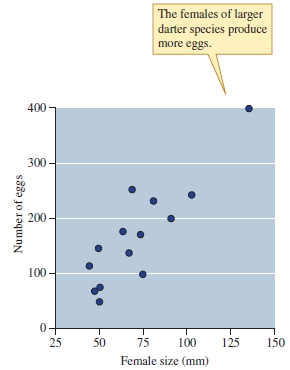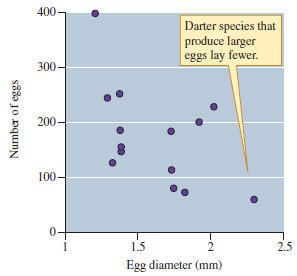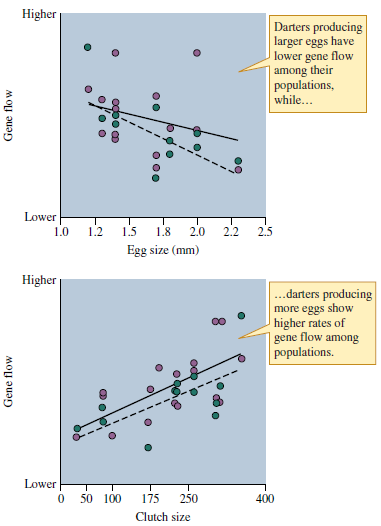
Ecology 6th Edition by Manuel Molles
Edition 6ISBN: 978-0073532493
Ecology 6th Edition by Manuel Molles
Edition 6ISBN: 978-0073532493 Exercise 19
Large darter species produce larger numbers of smaller eggs compared to smaller darter species (see figs. 12.3 12.4). Consequently, would you expect to find more genetic differences along the length of a river system among small darters or large darters (Hint: Consider fig. 12.5.)

Figure 12.3 Relationship between female darter size and number of eggs. Each point represents a different darter species (data from Turner and Trexler 1998).

Figure 12.4 Relationship between the size of eggs laid by several darter species and the number of eggs laid (data from Turner and Trexler 1998).

Figure 12.5 Egg size, egg number, and gene flow among darter populations (data from Turner and Trexler 1998).

Figure 12.3 Relationship between female darter size and number of eggs. Each point represents a different darter species (data from Turner and Trexler 1998).

Figure 12.4 Relationship between the size of eggs laid by several darter species and the number of eggs laid (data from Turner and Trexler 1998).

Figure 12.5 Egg size, egg number, and gene flow among darter populations (data from Turner and Trexler 1998).
Explanation
Ecologists have studied the relationship...
Ecology 6th Edition by Manuel Molles
Why don’t you like this exercise?
Other Minimum 8 character and maximum 255 character
Character 255


